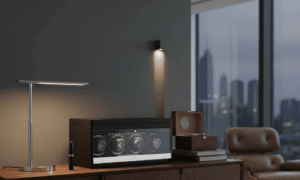When it comes to purchasing a new or used vehicle, finding the right car dealership can make all the difference. For those in Pennsylvania, there’s a wide variety of options to choose from, each offering different vehicles, financing options, and customer service experiences. Whether you’re in the market for a brand-new car, or a used vehicle, or are looking to trade in your current car, the process can seem overwhelming without the proper knowledge. Understanding what makes each dealership unique, and knowing what to expect, can help streamline the experience.
If you are searching for trusted options in your area, car dealership Pennsylvania offer everything from small family-owned operations to large, multi-brand showrooms. In this comprehensive guide, we’ll explore everything you need to know when shopping at car dealerships in Pennsylvania, including tips on selection, negotiation, financing, and post-purchase services.
Types of Car Dealerships in Pennsylvania
In Pennsylvania, car dealerships generally fall into three main categories: franchised dealerships, independent dealerships, and used car dealerships. Understanding the differences between these types can help you choose the one that best meets your needs.
Franchised Dealerships
Franchised dealerships are typically affiliated with a specific car manufacturer, such as Ford, Chevrolet, Honda, or Toyota. These dealerships sell new cars directly from the manufacturer and offer models that are exclusive to that brand. Franchised dealerships often provide a full range of services, including warranties, trade-in options, and a certified repair service department.
These dealerships may also carry certified pre-owned (CPO) vehicles, which are typically newer used cars that have undergone a manufacturer-specific inspection and come with an extended warranty. If you’re looking for a new car or a CPO vehicle, a franchised dealership is often the best place to start your search.
Independent Dealerships
Independent dealerships are not tied to a particular manufacturer, and they often offer a mix of both new and used vehicles from a variety of brands. These dealerships tend to be smaller, family-owned businesses and may offer more personalized customer service. Independent dealers may not have the same amenities as franchised dealerships, but they often have a more flexible approach to pricing and negotiation.
Independent dealerships are ideal for buyers who are looking for a broader selection of used cars from various manufacturers and who may prefer a more intimate, community-focused shopping experience. Additionally, independent dealers may offer lower prices on used vehicles, though the cars may not come with the same warranties or certifications as those offered at franchised dealerships.
Used Car Dealerships
Specializing in used vehicles, these dealerships focus on offering a wide range of pre-owned cars, trucks, and SUVs. Used car dealerships typically carry both older models and recent-year vehicles. These dealerships often have more affordable pricing compared to new car dealerships, making them ideal for buyers on a tight budget.
While the inventory is predominantly used cars, many used car dealerships also offer trade-in options and financing services. Depending on the dealership, you may find vehicles with limited warranties, as well as “as-is” cars that come without a warranty. It’s important to carefully inspect the vehicles and, if necessary, get a third-party mechanic to evaluate the car before committing to a purchase.
Choosing the Right Car Dealership
Choosing the right car dealership in Pennsylvania depends on several factors, including your preferences for the type of car you want, your budget, and the kind of customer experience you’re looking for. Here are some tips to help you make an informed decision.
Research Dealerships and Read Reviews
Start by doing some research on the dealerships near you. Many car dealerships in Pennsylvania have websites that list their current inventory, pricing, and services. Websites like Google, Yelp, and DealerRater also provide customer reviews, which can give you an idea of what to expect when working with a particular dealership.
Pay attention to how dealerships are rated in terms of customer service, transparency, and the quality of their vehicles. Reviews can provide insights into how the dealership handles pricing negotiations, after-sales support, and even the financing process.
Assess Your Needs and Budget
Before heading to a dealership, it’s essential to assess your own needs and budget. Consider factors such as:
- Car Type: Do you need a sedan, SUV, truck, or something else?
- New vs. Used: Are you interested in a new car, or would you prefer a used vehicle to save money?
- Budget: How much are you willing to spend, and do you plan to finance the vehicle or pay in full?
Having a clear understanding of your priorities and budget will help you narrow down your options and determine which type of dealership best suits your needs.
Visit Multiple Dealerships
Even if you find a car you like at one dealership, it’s a good idea to visit a few others to compare prices and inventory. Some dealerships may have better financing options, better customer service, or more competitive prices. Visiting multiple dealerships also allows you to test drive several models, which is crucial for making an informed decision.
Negotiating the Price
Negotiating the price of a car is one of the most important aspects of buying from car dealerships in Pennsylvania. Most dealerships will expect some level of negotiation, especially on used cars or when you’re trading in a vehicle. Here are some key strategies for negotiating the price:
Be Prepared to Walk Away
One of the most powerful negotiation tactics is simply being willing to walk away from the deal if it’s not right for you. If the dealership isn’t willing to meet your price or offer you a fair trade-in value, let them know that you’re open to other options. Dealers may be more willing to negotiate if they see that you’re not desperate to close the deal immediately.
Know Your Vehicle’s Value
Whether you’re buying a new or used car, knowing the fair market value of the vehicle is essential when negotiating. Use resources like Kelley Blue Book, Edmunds, or NADA to get an accurate estimate of the car’s value based on its make, model, mileage, and condition.
For used cars, be especially mindful of how the vehicle’s history (accidents, repairs, etc.) might affect its value. If the dealership’s asking price seems high, use the information you’ve gathered to justify a lower offer.
Don’t Focus Only on Monthly Payments
While the monthly payment may be the most convenient figure to consider, focusing only on this can sometimes work against you. Dealers can manipulate the financing terms to lower your monthly payment but extend the loan term, which could ultimately cost you more in the long run.
Instead, focus on the total price of the car, including taxes, fees, and interest. Be clear about your down payment and monthly payment limits so the dealership knows exactly what you’re looking for.
Financing Your Car Purchase
Financing is often a necessary part of buying a car, and Pennsylvania dealerships offer a variety of options to help you secure the best terms. Here’s a quick guide to financing through dealerships:
Dealership Financing
Many car dealerships in Pennsylvania offer in-house financing or work with a network of lenders to help buyers secure loans. The benefits of financing through a dealership include convenience and the possibility of getting a better rate than through a bank or credit union, especially if you have good credit.
Dealerships also sometimes offer special financing programs, such as 0% APR for qualified buyers or deferred payment options. Be sure to ask about these programs when discussing financing terms.
Third-Party Financing
If you prefer, you can secure financing through a third-party lender such as a bank, credit union, or online lender. This can give you more flexibility and allow you to compare interest rates across different lenders. Make sure to get pre-approved for a loan before visiting the dealership to ensure that you’re getting the best deal available.
Post-Purchase Services and Maintenance
Once you’ve purchased your vehicle, it’s important to consider post-purchase services such as warranties, maintenance, and repairs. Many car dealerships in Pennsylvania offer limited warranties on new and certified pre-owned vehicles, which can help protect you from unexpected repairs. Some used car dealerships may offer extended warranties or service contracts as well.
If your dealership offers a service department, consider using them for routine maintenance and repairs. Keeping up with scheduled maintenance helps extend the life of your car and keeps it running smoothly.
Conclusion
Purchasing a car is a significant investment, and finding the right dealership in Pennsylvania is essential to ensuring you get the best value for your money. By understanding the different types of dealerships, doing your research, and negotiating effectively, you can confidently navigate the car-buying process. Remember to assess your needs, compare prices, and be prepared to ask questions about financing and post-purchase services. With the right preparation, you can make an informed decision and drive away with a vehicle that fits both your lifestyle and your financial goals.



































